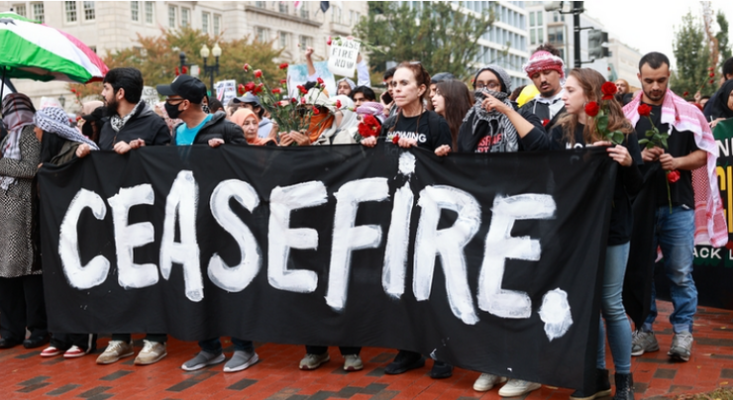 Minority communities historically suffer from a disproportionate preschool-to-prison pipeline, with prisons filled with BIPOC men and women who become part of this cycle. BIPOC people are far more likely to be criminalized than Whites. Research reveals this population has been disproportionately stopped, searched, arrested, convicted, harshly sentenced, and saddled with lifelong criminal records for drug law violations.
Minority communities historically suffer from a disproportionate preschool-to-prison pipeline, with prisons filled with BIPOC men and women who become part of this cycle. BIPOC people are far more likely to be criminalized than Whites. Research reveals this population has been disproportionately stopped, searched, arrested, convicted, harshly sentenced, and saddled with lifelong criminal records for drug law violations.
Such unequal incarceration destroys minority families, and in America, 2.7 million children grow up in households where one or more parents are incarcerated. Two-thirds of these parents are incarcerated for nonviolent offenses and drug law violations. Consequences of incarceration for a drug law violation include denials for child custody, voting rights, employment, business loans, licensing, student aid, public housing, other public assistance, and immigration opportunities. Criminal records often result in the deportation of legal residents or denial of entry for noncitizens trying to visit the U.S. Even if a person does not face jail or prison time, a drug conviction often imposes a lifelong ban on many aspects of social, economic, and political life. Such exclusions create a permanent second-class status for our residents and, like drug war enforcement itself, fall disproportionately on people of color.
Turning our attention to expungement must be a critical extension of our society.
Expungement of records services is desperately needed to alleviate this inequality. Most programs identify men as the logical recipients of expungement services. However, the subset of women incarcerated during the War on Drugs doubled between 1984 and 1993. Over one-third of all women in California prisons are sentenced for drug offenses. Women experience more physical, sexual, and emotional abuse and are disproportionately influenced by drug and alcohol use and economic factors in the commission of crimes. Imprisoned mothers face unique challenges. Community-based strategies and expungement goal setting will help this unique population of women and mothers.
Minority youths are particularly impacted. Young offenders must work to reclaim their education and gain job skills. They are often defined only by their unemployment, poverty, crime struggles and challenges, not by their potential. Many of these youths are from the foster care sector of society. Youth are additionally confounded by how they will provide for themselves once the foster care system ceases to support them at age 18. Many youths are already parents and therefore challenged to provide for themselves and their children. These BIPOC youths are often children of immigrants, have incarcerated parents, or are the product of familial violence and trauma. In addition to expungement services, they need psychiatric counseling, mentoring, and goal setting; they need education, training, and opportunities that lead to long-term professional and personal success.
In Pasadena, our City Prosecutors’ office prosecutes 4500 to 5000 crimes yearly.
If each of these 5000 offenders completes the conditions of their offenses, they all have the potential to be eligible for expungement. Sadly, the City Prosecutor’s office has no designated funding to help with this task and only performs the services from their regular operating budget. Without a line-item budget, they can only perform 15 expungements every week for crimes committed in Pasadena, with just under 800 completed in 2021. While their office does not expunge felony convictions (only the DA’s office does felonies) and maintains no demographics or statistics, they anecdotally estimate that 30% to 35% of the expungements were drug related. The City Prosecutor’s office also works on expungements for penal code and vehicle code crimes. A $200,000 per year line item for expungement would allow them to hire a full-time prosecutor, upgrade their case management software, and create a marketing plan to let people know about their services. It seems a small price to pay to allow 5000 people to return to society.
Private expungement service providers take a more comprehensive approach, asking each participant to outline a set of goals and objectives, long-term and short-term, and to access other resources available to help eliminate barriers to success. This method also may reduce the likelihood of recidivism. But expungement can be very costly, with privately funded hard costs averaging approximately $1000 to $2500 or higher per applicant, depending on the case.
Pasadena must continue with its plan for social justice and social equity.
Creating partnerships with like-minded agencies, employers, businesses and services in our Greater Pasadena area would provide a cohesive effort for this population. To be most effective, these partners must include people of color, women, veterans and the disabled. They are more effective at serving at-risk and minority populations when they consistently embrace the BIPOC community through various disciplines, developing and implementing strategies that meet the needs of this critical constituency. Programming must be developed through the Diversity, Equity, and Inclusion (DEI) lens to ensure BIPOC individuals and groups feel comfortable and confident navigating the journey from expungement to returning to society.
Expungement opens a wide variety of opportunities for the previously convicted to return to society.
As more states legalize cannabis use and pass decriminalization laws, it’s important to offer resources to delete records. Key collaborators must partner to make an effective program that includes legal services, access to financial resources, trauma healing, jobs readiness, jobs training, grants and contracts administration and social services. All these skills are valuable in helping people set goals for improving their lives through an expungement program. Agencies must have devoted volunteers and mentors accustomed to working with populations who need help setting and achieving goals. They must deeply understand social services, job banks, trauma resource centers, and the police department and have access to community leaders at all levels, including educational, political and law enforcement sectors. These contacts and their inclusion in the process are extremely useful in steering expungement successes in Pasadena.
The needs for social justice and social equity are constantly changing. We must be tireless in identifying trends, improving strategies, and adopting innovative approaches that fully encompass expungement, education, and employment. Clearly, we must identify the funding to accomplish these goals and return the disproportionately punished people of color to society.
Sheryl Turner is President and CEO of Friends of the Miracle Mile, a Pasadena-based California 501c(3) nonprofit organization formed in 2004 to help communities in the Greater Southern California area. FMM has applied for a California Community Reinvestment Grant to provide expungement services in Pasadena.














 1 comment
1 comment


